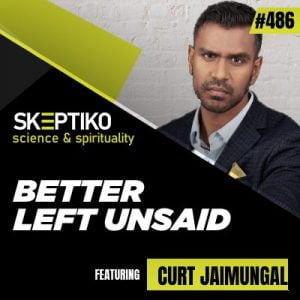Understanding the Blur Between Entertainment and Reality
 In a recent episode of Skeptiko, hosted by Alex Tsakiris, an intriguing discussion unfolds about the increasingly blurred lines between entertainment and reality. Referencing popular movies like “The Hunger Games,” the conversation delves into how modern entertainment influences our perception of reality and societal behavior. This topic raises important questions about the impact of media on public consciousness and the shaping of societal norms and expectations.
In a recent episode of Skeptiko, hosted by Alex Tsakiris, an intriguing discussion unfolds about the increasingly blurred lines between entertainment and reality. Referencing popular movies like “The Hunger Games,” the conversation delves into how modern entertainment influences our perception of reality and societal behavior. This topic raises important questions about the impact of media on public consciousness and the shaping of societal norms and expectations.
The Challenge of Conversing with ‘Woke’ Culture
The dialogue then shifts to the complexities of engaging with ‘woke’ culture, particularly for progressive, left-leaning individuals. Alex Tsakiris and Curt Jaimungal explore the paradoxical nature of attempting meaningful dialogue with those who may hold rigid ideological beliefs. This segment highlights the struggle in bridging communication gaps and understanding diverse perspectives in an increasingly polarized society.
Debating the Nature of Values and Truth
One of the core debates in the episode revolves around the nature of values and truth. The conversation critically examines whether these are merely social constructs or have a deeper, more intrinsic value. This discussion encompasses the role of science and truth in society, sparking a debate on their objective versus constructed nature.
Interpreting Post-modernism and Marxism
The conversation takes a turn into the realms of post-modernism and Marxism. Tsakiris and Jaimungal engage in a nuanced debate over the interpretations of these ideologies, questioning whether they inherently dismiss all values or are often misunderstood. This part of the discussion offers insights into the complexities of academic and social discourse surrounding these ideologies.
The Debate on Consciousness: Fundamental or Illusion?
A significant portion of the discussion centers on the nature of consciousness. Differing viewpoints emerge on whether consciousness is a fundamental aspect of reality or an elaborate illusion. This segment ties into broader discussions on spirituality, religion, and near-death experiences, showcasing the depth and diversity of thought in these areas.
Christianity, Social Engineering, and Control
The episode then explores the role of Christianity and other religions in social engineering and societal control. The hosts debate the extent to which governments have used religious and psychological tactics for controlling societies, linking these discussions to broader spiritual beliefs and practices.
Horseshoe Theory and Political Extremes
Towards the end of the discussion, the concept of the horseshoe theory is brought into focus. This theory suggests that extreme political ideologies, whether on the left or the right, are more similar to each other than to moderate views. This part of the conversation sheds light on the impact of extreme ideologies on society and the challenges in determining causation in historical and contemporary events.
Also check: Curt Jaimungal Biography
To delve deeper into these intriguing discussions and gain more insight into these complex topics, be sure to listen to the full episode, titled “Curt Jaimungal, Better Left Unsaid Analysis |486|” on Skeptiko.





